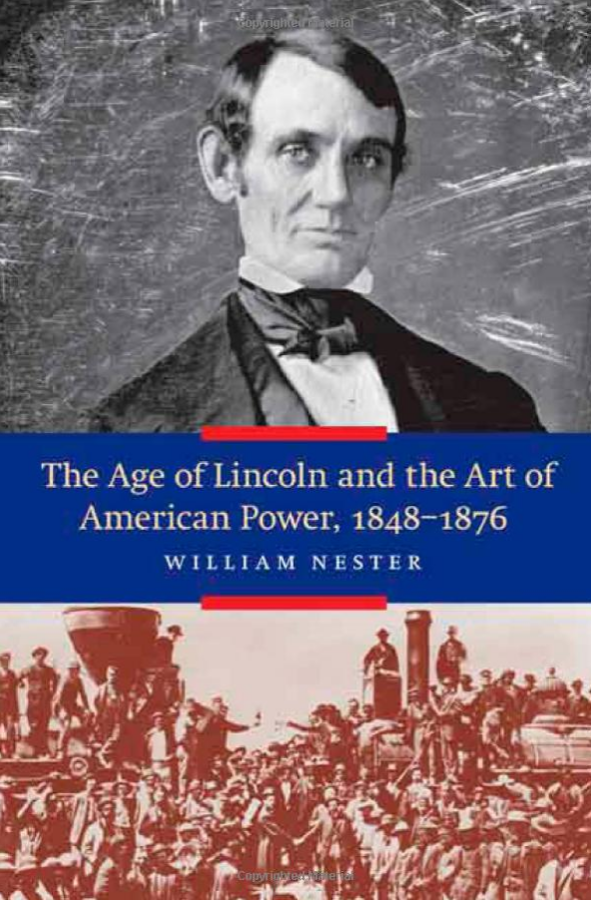The Age of Lincoln and the Art of American Power, 1848-1876 by William R. Nester. Potomac Books, 2014. Cloth, ISBN: 1612346588. $34.95.
 President Lincoln did not shrink from exerting his power. Within days of the firing on Fort Sumter, he enlarged the army without Congressional authorization; spent money for purposes other than those designated by Congress; and authorized the suspension of the writ of habeas corpus. He awaited Congressional approval after the fact, noting “that nothing has been done beyond the constitutional competency of Congress” —a remarkable equation of executive and legislative powers.
President Lincoln did not shrink from exerting his power. Within days of the firing on Fort Sumter, he enlarged the army without Congressional authorization; spent money for purposes other than those designated by Congress; and authorized the suspension of the writ of habeas corpus. He awaited Congressional approval after the fact, noting “that nothing has been done beyond the constitutional competency of Congress” —a remarkable equation of executive and legislative powers.
While he admitted that some of his actions were “without authority of law,” in 1863, he explained that he was “thoroughly imbued with a reverence for the guaranteed rights of individuals” and “was slow to adopt the strong measures, which by degrees I have been forced to regard as being within the exceptions of the constitution, and as indispensable to the public safety.” On habeas corpus, he was anything but slow. Conscription, the Emancipation Proclamation, and novel Reconstruction measures charted by degrees were considered too slow by radical Republicans, but much too fast for the Democratic opposition. To Lincoln, his war powers seemed greater than Congress’s. For example, the Emancipation Proclamation was already in effect when he stated his view that Congress could not abolish slavery. Yet history sees Abraham Lincoln as a giant in character and deeds. Governing brilliantly during his presidency, Lincoln developed the economy, liberated four million people from slavery, reunified the nation, and signed the Homestead Act. He evolved into an outstanding Commander-in-Chief, and was skilled as a diplomat, economist, humanist, educator, and moralist.
William Nester’s insightful book demonstrates the brilliance of Abraham Lincoln and his use of power. To the author, “Lincoln’s art of power ultimately reflected his unswerving devotion to the Declaration of Independence’s principles and the Constitution’s institutions, or, as he so elegantly expressed it, ‘to a government of the people, by the people, and for the people.’” Lincoln believed that “public sentiment is everything.” And he was quick to set an example for others. His practical good sense was instrumental in convincing people and by appealing to their hopes rather than their fears.
This book is important in demonstrating how Lincoln was so effective in bridging the gap between progressives and conservatives, by holding back the former and convincing the latter to act. His performance is why history has treated Abraham Lincoln more kindly than the other six presidents (Zachary Taylor, Millard Fillmore, Franklin Pierce, James Buchanan, Andrew Johnson, and Ulysses S. Grant) who served during the tumultuous years between the end of the Mexican American War and the end of Reconstruction.
In recent times, some historians have been careful to note that Lincoln’s strong measures, instituted without Congressional advice or approval, were not precedents for similar actions by modern presidents in wars against foreign nations. But by far, Nester concludes, “it was [Lincoln’s] brilliant leadership that mobilized enough vital hard- and soft- power resources for the United States to crush the Confederacy.”
Frank J. Williams is the Founding Chair of The Lincoln Forum and former Chief Justice of the Rhode Island Supreme Court. His most recent book is Lincoln as Hero (2012).
